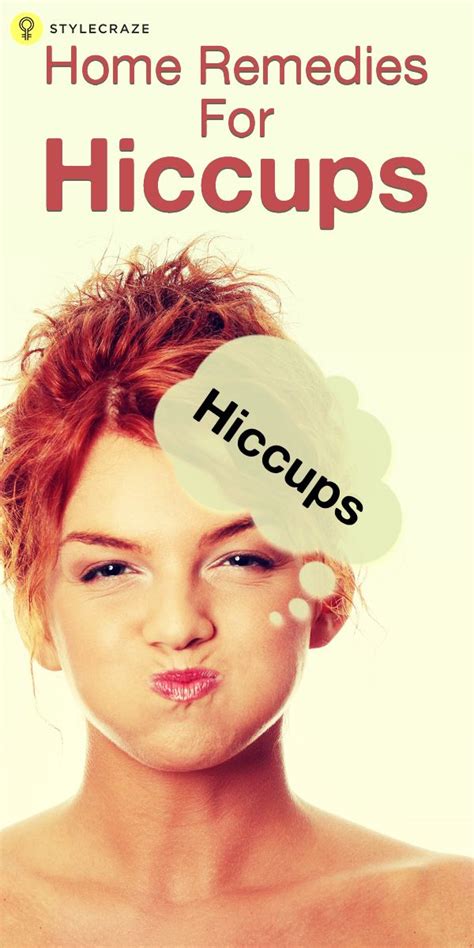The Ultimate Drunk Hiccup Remedy: More Than Just Holding Your Breath
Hiccups. That annoying, involuntary spasm of your diaphragm that can range from mildly irritating to utterly maddening. And when those hiccups hit after a night of celebrating a little too enthusiastically, they can feel particularly relentless. While there's no single "ultimate" remedy guaranteed to work for everyone, this article will explore the science behind hiccups, debunk common myths, and provide a range of effective strategies to banish those pesky post-drinking hiccups.
What Causes Drunk Hiccups?
Alcohol, while enjoyable in moderation, can disrupt the delicate balance of your nervous system. This disruption can trigger hiccups in a few ways:
- Irritation of the Phrenic Nerve: Alcohol can irritate the phrenic nerve, which controls the diaphragm. This irritation leads to the involuntary contractions that cause hiccups.
- Gastric Distension: Excessive alcohol consumption can lead to stomach bloating and distension, which can also stimulate the phrenic nerve and trigger hiccups.
- Dehydration: Alcohol is a diuretic, meaning it makes you urinate more frequently. Dehydration can further irritate the nervous system and exacerbate hiccup episodes.
Common Drunk Hiccup Remedies (and Why They May or May Not Work)
Many home remedies exist, but their effectiveness varies greatly from person to person. Let's examine some popular options:
Holding Your Breath:
This is a common suggestion, but its effectiveness is debatable. While briefly stopping your breathing can sometimes interrupt the hiccup cycle, it's not a sustainable solution and can even lead to lightheadedness or hyperventilation.
Drinking Water:
Sipping water slowly can sometimes help. The act of swallowing might reset the diaphragm's rhythm. However, chugging water is unlikely to be helpful and could worsen any stomach upset.
Sugar:
A spoonful of sugar is another often-suggested remedy. The theory is that it helps to calm the nervous system, but scientific evidence supporting this is weak.
Effective Strategies to Stop Drunk Hiccups
The following strategies offer a more scientific and reliable approach to stopping hiccups, particularly those triggered by alcohol consumption:
Address the Underlying Cause:
- Hydration: Rehydrate with water or an electrolyte drink to counteract the dehydrating effects of alcohol.
- Calm Down: Stress and anxiety can worsen hiccups. Try relaxation techniques like deep breathing or meditation.
- Avoid Triggers: Avoid further alcohol consumption or anything that might irritate your stomach.
Proven Techniques:
- The Valsalva Maneuver: Gently try this technique by pinching your nose shut, closing your mouth, and attempting to exhale forcefully. This temporarily increases pressure in your chest and can interrupt the hiccup reflex. Caution: Avoid if you have heart conditions.
- Gag Reflex: Gently try to trigger your gag reflex by tickling the back of your throat with your finger. This can sometimes disrupt the hiccup pattern.
- Distraction: Focusing on something else can sometimes interrupt the hiccup cycle. Try engaging in a conversation, listening to music, or focusing on a specific task.
Medical Advice When Necessary:
Persistent hiccups lasting more than 48 hours could indicate a more serious underlying medical condition. Consult a doctor if your hiccups are severe, prolonged, or accompanied by other symptoms.
Frequently Asked Questions (FAQ)
Why do I get hiccups after drinking alcohol?
Alcohol can irritate the phrenic nerve, which controls the diaphragm, leading to involuntary muscle spasms (hiccups). It can also cause gastric distension and dehydration, further contributing to the problem.
How long do alcohol-induced hiccups usually last?
The duration varies, but most cases resolve within a few minutes to a few hours. However, persistent hiccups require medical attention.
Are there any over-the-counter medications for hiccups?
There are no specific over-the-counter medications specifically for hiccups. However, addressing underlying issues like dehydration with electrolytes can be helpful.
When should I see a doctor about hiccups?
Consult a doctor if your hiccups persist for more than 48 hours, are severe, or are accompanied by other symptoms such as fever, chest pain, or difficulty breathing.
This article provides a comprehensive overview of hiccup remedies, particularly in the context of alcohol consumption. Remember, while there's no magic cure, a combination of addressing underlying causes and employing the suggested techniques can significantly increase your chances of quickly getting rid of those pesky drunk hiccups. Always consult a medical professional for persistent or concerning symptoms.

